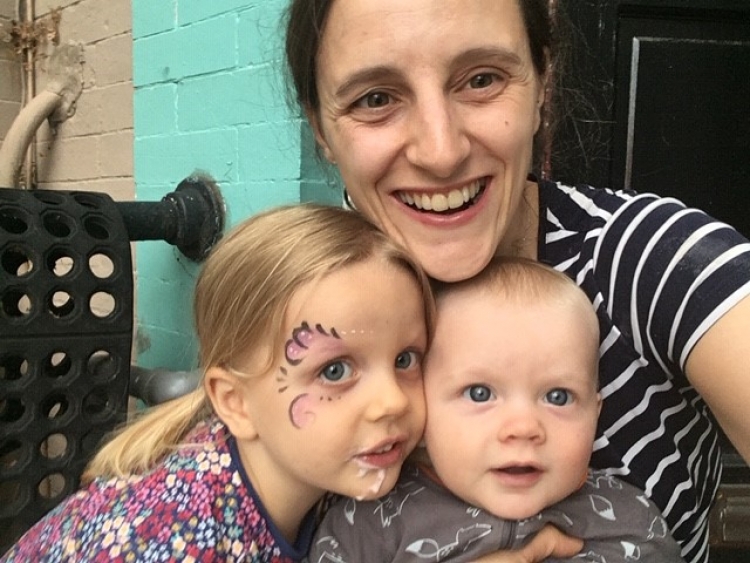Ruth Kennedy-Walker
I recently returned to work after six months of maternity leave with my second child. Transitioning back to my ‘original’ role as a Water Supply and Sanitation Specialist at the World Bank, alongside my new role as a Mum, has been a challenging but fun experience! And it has really made me think about some of the connections between both roles.
While I was away, with my days occupied with feeding the baby, trying to get them to sleep and nappy changes, the World Bank released the Human Capital Project and the associated Human Capital Index (HCI). It’s a simple yet powerful idea – human capital is a key driver of economic growth, which can end extreme poverty and create more inclusive societies. And when these investments begin in the early years of life and are sustained throughout a person’s life, they lay a strong foundation for the growth and competitiveness of nations.
Learning more about this work, I’ve been struck by just how essential water, sanitation and hygiene (WASH) are to building human capital. Having just started the journey into motherhood, I see every day just how essential it is for me and my family. And in my day job, I so often see that other new moms across the world feel exactly the same way. For me – for all of us – it’s not only about the economics (although they are clearly important!) but also about the safety, dignity and healthy beginning that WASH brings to children.
Whilst I was pregnant with my children, access to safe WASH meant I could be in the best condition of health to grow a healthy baby. Not everybody in the world is so fortunate. Women exposed to poor sanitary environments were found to be more than twice as likely to experience a preterm birth or other adverse pregnancy outcomes in rural India, and 1.71 times as likely to have a stillbirth in Nepal.
At birth and during the post-natal period, simply having access to safe WASH and a clean environment ensured that my children and I had a higher rate of survival. About 11% of maternal deaths worldwide are caused by sepsis, an infection that is directly linked to unhygienic conditions during labor and childbirth. A study in Nepal showed a 41% drop in neonatal fatality through simple handwashing interventions. That means twice as many children survive simply because there are adequate handwashing infrastructure and behaviors. It also ensured I had a safe, comfortable and dignified place to give birth. A place to deal with the post-natal realities, Lochia- a very natural outcome of childbirth, and for me like so many other mother’s, post-operative wounds.
As my children grow, access to safe WASH ensures they will not be subject to continuous bouts of diarrhea, they can grow fully and not be stunted. It ensures that they can realize their potential, that their cognitive development and physical growth isn’t hindered. That their bodies can absorb the vital nutrients that they need to function.
It means that my children are not scared to walk to or use the toilet, they do not fear that they will fall in. They and I do not fear for their lives, each day when they go to school or use public toilets. The recent news of two 5-year-old children falling into their school toilet and dying in South Africa really resonated with me. The heartache and pain of losing a child in such a horrible way, as quoted from one of the children’s mothers “You send your happy, healthy kid to school one day, and they never come back.”
As children grow, access to safe WASH will ensure they receive a quality education. The links between WASH and education may not immediately appear obvious, but they are incredibly important. Access to WASH means my children won’t miss days from school to fetch water. It means they won’t need to hold their bladder and bowels because they don’t have a toilet. And it means my daughter can menstruate with dignity. She and all the girls around her can go through what every woman around the world naturally goes through each month in a safe, private and clean environment. Menstruation really matters. After all, every woman menstruates and without it we wouldn’t have a lifecycle.
Access to safe WASH means that my children can become the most effective, productive, dignified and fulfilled adults, not blighted by the fact that they did not have access to a basic human right, safe water supply, sanitation and hygiene.
Motherhood is something that defines our common humanity. The joy, the tears, the connection – these are just some of the ties that bind us, no matter where we were born or where we may live. The water supply, sanitation and hygiene our children need to grow and thrive is something I dearly want for mine throughout their lives. And I know every mother in the world will feel exactly the same way about their children. On this Menstrual Hygiene Day, let’s take a moment to remember this – and commit to redoubling our efforts for women and children everywhere. – World Bank Blog




